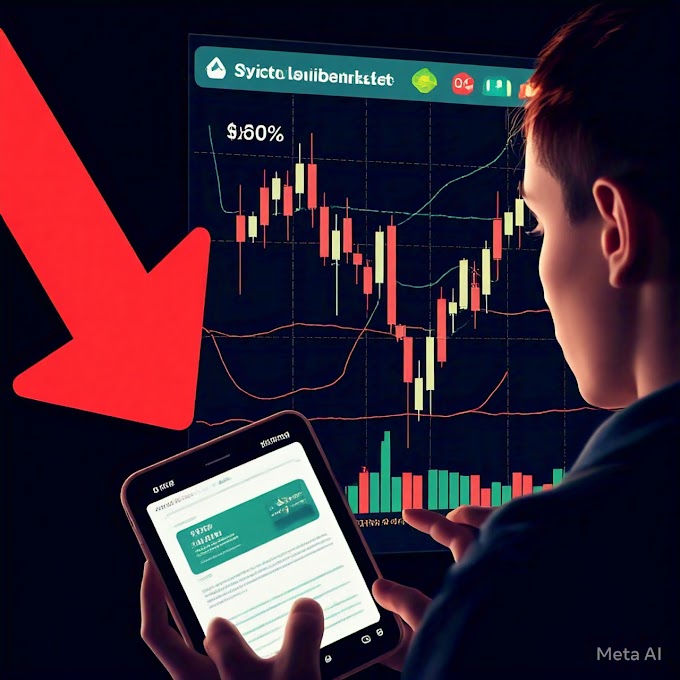The question "Do Elon Musk own Bitcoin?" has sparked curiosity among cryptocurrency enthusiasts, investors, and followers of the enigmatic billionaire. As a polarizing figure known for his influence on markets and bold ventures like Tesla, SpaceX, and Neuralink, Elon Musk’s relationship with Bitcoin has been a topic of speculation and debate. His tweets, interviews, and corporate decisions have often moved the crypto market, leading many to wonder about his personal stake in the world’s most famous cryptocurrency. This article dives into the question, exploring Musk’s public statements, actions, and their broader implications to provide a clear and informative picture.
Table of Contents
- Elon Musk’s Public Statements on Bitcoin
- Tesla’s Bitcoin Investment and Its Impact
- Musk’s Influence on Cryptocurrency Markets
- Does Musk Personally Own Bitcoin?
- Why the Question Matters
- FAQs
- Conclusion
1. Elon Musk’s Public Statements on Bitcoin
Elon Musk’s relationship with Bitcoin has largely been shaped by his public statements, often shared through social media platforms like X or in interviews. Musk has a history of making cryptic, humorous, or provocative comments about cryptocurrencies, which have fueled speculation about his personal involvement.
In early 2021, Musk’s tweets about Bitcoin sent shockwaves through the crypto community. For instance, he added “#Bitcoin” to his Twitter bio, a move that coincided with a significant spike in Bitcoin’s price. He also tweeted memes and playful remarks, such as calling Bitcoin “almost as bs as fiat money” in December 2020, hinting at a nuanced view of the cryptocurrency. However, Musk has been careful not to explicitly confirm or deny owning Bitcoin in his personal capacity. Instead, his comments often focus on Bitcoin’s potential as a store of value or its role in the future of finance.
In a 2021 interview on the Clubhouse app, Musk expressed a cautious admiration for Bitcoin, stating he was “late to the party” but saw its value as a decentralized alternative to traditional currencies. He also acknowledged the environmental concerns tied to Bitcoin mining, which relies heavily on energy-intensive processes. These statements suggest Musk is intrigued by Bitcoin’s technology but remains critical of certain aspects, leaving his personal ownership ambiguous.
2. Tesla’s Bitcoin Investment and Its Impact
One of the most significant moments in the Musk-Bitcoin saga came in February 2021, when Tesla, Musk’s electric vehicle company, announced it had purchased $1.5 billion worth of Bitcoin. The announcement, made through a filing with the U.S. Securities and Exchange Commission (SEC), sent Bitcoin’s price soaring to new heights. Tesla also revealed plans to accept Bitcoin as payment for its vehicles, further signaling Musk’s confidence in the cryptocurrency.
This move was seen as a bold endorsement of Bitcoin by one of the world’s most prominent companies. It sparked discussions about whether other corporations would follow suit, with some analysts arguing it legitimized Bitcoin as an asset class. However, Tesla’s Bitcoin journey wasn’t without controversy. In May 2021, Musk announced that Tesla would suspend Bitcoin payments due to concerns about the environmental impact of Bitcoin mining, which relies heavily on fossil fuels in some regions. This decision led to a sharp drop in Bitcoin’s price, highlighting Musk’s outsized influence on the market.
Tesla’s Bitcoin holdings were partially sold off in 2022, with the company reporting it had sold 75% of its Bitcoin for $936 million. Musk explained the sale was driven by liquidity needs amid economic uncertainty, particularly related to Tesla’s operations in China. While Tesla’s Bitcoin investment is distinct from Musk’s personal finances, it has often been conflated with his personal stance, adding to the speculation about whether he holds Bitcoin himself.
3. Musk’s Influence on Cryptocurrency Markets
Elon Musk’s ability to move cryptocurrency markets with a single tweet or comment is a phenomenon often referred to as the “Musk Effect.” His influence stems from his massive following—over 200 million on X as of 2025—and his reputation as a forward-thinking entrepreneur. When Musk speaks about Bitcoin or other cryptocurrencies like Dogecoin, markets react almost instantaneously.
For example, in March 2021, Musk tweeted that Tesla customers could buy cars with Bitcoin, boosting its price significantly. Conversely, his May 2021 tweet about suspending Bitcoin payments caused a market dip. These fluctuations have led some to criticize Musk for market manipulation, while others see his actions as a natural consequence of his prominence and the volatile nature of cryptocurrencies.
Musk’s influence extends beyond Bitcoin. His vocal support for Dogecoin, a meme-based cryptocurrency, has driven its price to unexpected heights at times. This has led some to speculate that Musk’s interest in cryptocurrencies may be more about experimentation or publicity than a deep personal investment in Bitcoin specifically. Regardless, his ability to sway markets underscores why the question of his personal Bitcoin ownership is so compelling.
4. Does Musk Personally Own Bitcoin?
The core question—does Elon Musk own Bitcoin?—remains unanswered definitively. Musk has never publicly confirmed holding Bitcoin in his personal portfolio, and no credible reports have verified such ownership. In interviews, Musk has dodged direct questions about his personal crypto holdings, often redirecting the conversation to broader topics like blockchain technology or Tesla’s corporate strategy.
That said, there are reasons to believe Musk might own Bitcoin. As a billionaire with diverse investments, it’s plausible he holds some cryptocurrency as part of his portfolio. In a 2021 tweet, Musk hinted at owning “0.25 BTC” as a joke, but there’s no evidence to substantiate this claim. Additionally, his fascination with decentralized systems and his role in promoting Bitcoin through Tesla suggest he may have a personal interest in the asset.
On the other hand, Musk’s public criticisms of Bitcoin’s energy consumption and his preference for Dogecoin in some contexts could indicate he’s not heavily invested in Bitcoin. Without concrete evidence, such as a wallet address or financial disclosure, any claim about Musk’s personal Bitcoin ownership remains speculative.
5. Why the Question Matters
The question of whether Elon Musk owns Bitcoin is more than just celebrity gossip—it reflects broader themes in the cryptocurrency world. Musk’s actions, whether as an individual or through Tesla, have significant implications for Bitcoin’s adoption and perception. If Musk were to confirm personal ownership, it could further boost Bitcoin’s credibility among mainstream investors. Conversely, a clear statement denying ownership might dampen enthusiasm, given his influence.
Moreover, Musk’s involvement with Bitcoin raises questions about the role of high-profile figures in shaping financial markets. His ability to influence prices through tweets has sparked debates about market volatility and the need for regulation in the crypto space. For investors, understanding Musk’s stance on Bitcoin can inform decisions about whether to buy, hold, or sell the cryptocurrency.
The question also ties into larger discussions about wealth, technology, and decentralization. As a billionaire who champions innovation, Musk’s potential ownership of Bitcoin could signal his belief in a decentralized financial future—or it could simply be a pragmatic investment choice. Either way, the speculation surrounding his ownership keeps the crypto community buzzing.
6. FAQs
Q: Has Elon Musk ever confirmed owning Bitcoin?
A: No, Elon Musk has not publicly confirmed owning Bitcoin in his personal capacity. His comments have focused on Bitcoin’s technology or Tesla’s corporate holdings.
Q: Did Tesla’s Bitcoin investment mean Musk personally owns Bitcoin?
A: Not necessarily. Tesla’s $1.5 billion Bitcoin purchase in 2021 was a corporate decision, and there’s no evidence linking it directly to Musk’s personal finances.
Q: Why do Musk’s tweets affect Bitcoin’s price?
A: Musk’s massive following and reputation as an innovator give his statements significant market influence, often causing rapid price movements in Bitcoin and other cryptocurrencies.
Q: Does Musk prefer Dogecoin over Bitcoin?
A: Musk has shown more vocal support for Dogecoin, often tweeting about it humorously. However, he has also acknowledged Bitcoin’s value, making his preference unclear.
Q: Could Musk’s Bitcoin ownership be verified?
A: Verifying Musk’s Bitcoin ownership would require public disclosure of his crypto wallet, which is unlikely given his privacy and the pseudonymous nature of Bitcoin.
7. Conclusion
The question “Do Elon Musk own Bitcoin?” remains a mystery, wrapped in the larger-than-life persona of one of the world’s most influential figures. While Musk’s public statements and Tesla’s corporate actions have fueled speculation, there’s no concrete evidence confirming his personal ownership of Bitcoin. His influence on the cryptocurrency market, however, is undeniable, with his tweets and decisions capable of sending prices soaring or crashing.
For now, the crypto community can only speculate about Musk’s personal stake in Bitcoin. Whether he owns it or not, his role in shaping the narrative around cryptocurrencies highlights the power of influential figures in the digital age. As Bitcoin continues to evolve, Musk’s actions—whether as a provocateur, investor, or innovator—will likely keep the question alive, sparking curiosity and debate for years to come.



.jpeg)





